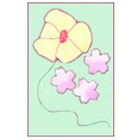My host mother is going to get on my nerves. This was one of my early thoughts during the first week of my five-month stay in Sevilla, Spain. The thought didn’t last long, interestingly, after I realized how similar Spain and Japan were.
I traveled to Sevilla, the capital city in Andalucia (southern region of Spain) in the spring of 2004 for a semester-long study abroad program. After taking my first shower at my host mother’s house, I thought my living situation would be an austere experience for the duration of my stay. I knew I would experience many cultural adjustments—I looked forward to them—but I did not expect to have to compromise my showering habits.
For Japanese people, taking showers in the evening before going to bed is customary. Growing up, my mother made my brother and me take our showers before we went to bed because she didn’t want us to go to sleep with the germs we had accumulated from our day outside. Therefore—unless on a rare occasion—I take my showers at night.
Since it was my first night at my new home for five months, I felt obligated to tell Señora Ramirez when I was ready to take my shower. She was surprised I told her at 9pm. She asked why I take my showers so late. I explained to her. She told me that of all the American students she had hosted, I was the first to take a shower at night. She grumbled her way upstairs to show me how to use the shower. I think she was just frustrated that I interrupted her while she was watching her favorite sitcom.
I have a shower ritual that would probably upset environmental activists. Because I take my showers at night, I leave my bedroom light on so that when I’m done, I can walk to my lit bedroom without having to fiddle for the light switch in the dark.
In the case of my first Sevillan shower (and few subsequent ones), I saw only darkness as I walked toward my bedroom. Frustrated, blinded and in my towel, my hands took turns reaching up and down the wall for the light switch. Señora Ramirez walked in a few minutes later and scolded me for leaving the bedroom light when I wasn’t there. Our heads turned toward the hallway to the bathroom. I left the light on because I planned to go back and brush my teeth. She scolded me again. She said that electricity, gas and water is not cheap in Spain, especially in Sevilla. (I learned later that there was a severe drought in Sevilla in the 1990s that resulted in unemployment.)
This is so Japanese, I thought. Careful attention to consumption of the city’s—and essentially the Earth’s—resources was a foremost conscious thought of Sevillians. Regardless of what time of day I took my shower, the fact of the matter was I was not being conscious of my environment. It made me realize how much more American than Japanese I was.
I thought about recycling. Recycling in the U.S. is an option, oftentimes an arduous choice, whereas in Japan, it’s mandatory. It could be just a cost thing. Maybe water, gas and electricity are cheap in the United States and maybe it’s just more expensive in Japan and Spain. And because water, gas and electricity are more expensive in Japan and Spain, people have no choice but to be conscientious of how much they consume.
After my first and few subsequent shower incidents, I started to become more attentive to Spanish customs and things I thought resembled Japanese ones. Careful attention to consumption of water and energy; the small-sized paper napkins at cafes and cloth napkins at restaurants; that every Spaniard always seemed to carry a pack of tissues; the unusually long running time of commercials between segments of a television show; the strict properness of casual clothing—only Americans wore flip flops in Sevilla. All of these things, strangely, reminded me of Japan. There were also a few Japanese restaurants in the city and a crazy obsession with the Japanese cartoon, “Crayon Shinchan”—neither of which had anything to do with the environment so I will expand on these two things later.
Señora Ramirez did not end up getting on my nerves, even though I took several more showers while leaving the bedroom light on. She scolded me every time. I finally got the point after two months. It also improved my Spanish.
Some words of wisdom to soon-to-be study abroad students going to Spain: bring a flashlight.
© 2007 Victoria Kraus




